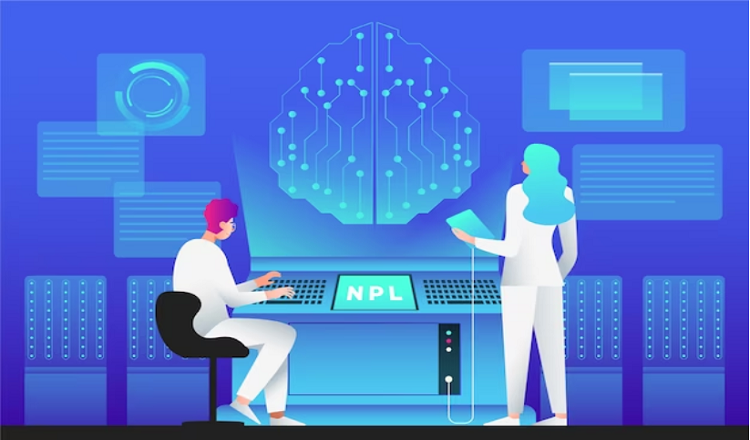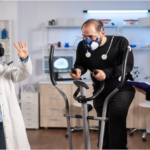
Health-wise, prevention is always preferable to treatment. For effective treatment to work and for excellent results, early disease detection is essential. Artificial Intelligence (AI) algorithms are transforming the field of disease detection and prediction as a result of technological advancements. AI systems are revolutionizing disease prediction by analyzing massive quantities of data and spotting trends that human doctors would overlook.
Cancer, diabetes, cardiovascular disorders, Alzheimer’s, and Parkinson’s disease are some of the most prevalent conditions that AI algorithms may identify early in the United States. Early diagnosis of these conditions can lead to much better treatment results, lower healthcare expenses, and higher survival rates. AI algorithms can assist in spotting tiny changes in a patient’s health status, allowing medical professionals to act quickly and offer individualized treatment regimens.
Although AI algorithms have a lot of potential for the healthcare industry, there are several obstacles and restrictions that must be overcome. The significance of early detection in disease prediction, the function of AI algorithms in this process, and the most prevalent diseases that can be diagnosed early with AI will all be covered in this blog. We will also talk about the advantages of early detection and how AI algorithms are affecting the healthcare sector. Therefore, unwind while you read about how AI algorithms are revolutionizing disease prediction in the USA.
AI’s Contribution to Early Disease Detection
AI algorithms are able to scan vast volumes of data and spot trends that human doctors might not be able to see. They are therefore useful resources for the early diagnosis of diseases. AI systems can identify the earliest symptoms of diseases including cancer, Alzheimer’s, and diabetes by examining medical pictures, patient records, and other health data. For instance, using mammography analysis, artificial intelligence (AI) algorithms can find breast cancer at an early stage, when treatment is most successful.
One of the key benefits of utilizing AI algorithms for early disease diagnosis is that, in comparison to conventional screening approaches, they can deliver diagnoses that are more precise and fast. Healthcare workers’ workloads may be lessened by AI algorithms, freeing them up to concentrate on giving patients-specific care. Nevertheless, there are drawbacks to utilizing AI algorithms for early disease detection, such as worries about data privacy and the requirement for constant algorithmic training and development to keep up with emerging diseases.
Major Illnesses that AI Algorithms Can Detect Early
The most common and deadly diseases in the USA that can be identified early by AI algorithms include Alzheimer’s, Parkinson’s, diabetes, cancer, and cardiovascular illnesses. If not identified and treated promptly, these diseases have a serious effect on public health and can cause premature death and disability. For instance, early identification can increase survival rates for cancer, which is the second largest cause of death in the US. Medical picture analysis by AI algorithms can spot malignant growths at an early stage, when therapy is most successful. Similar to this, AI systems can track blood glucose levels and aid in the early diagnosis of diabetes, giving patients the ability to manage their illness and avoid complications.
Early detection benefits of AI algorithms
There are many advantages of using AI algorithms for early disease identification. By enabling prompt intervention and therapy, it may improve patient outcomes. By avoiding more expensive and invasive therapies that may be needed at later stages of the disease, early detection can also lower healthcare expenditures. For instance, a reduction in mortality rates of 25–30% can be achieved with early identification of breast cancer. Additionally, problems like blindness and kidney damage can be avoided or delayed with early diabetes detection. In general, using AI algorithms for early detection has the potential to save lives, enhance patient quality of life, and save healthcare expenditures.
Health Industry and AI Algorithms
The US healthcare sector is changing due to AI algorithms. By delivering precise and rapid diagnoses, decreasing medical errors, and facilitating individualized treatment regimens, they are enhancing the effectiveness and efficiency of healthcare delivery. By automating repetitive operations, AI algorithms can lessen the strain on healthcare systems and free up healthcare personnel to focus on giving patients more individualized care. However, there are also moral questions raised by the application of AI in healthcare around data privacy, bias, and accountability. These issues must be addressed in order to guarantee the moral and responsible application of AI in healthcare.
AI algorithms’ role in early detection in the future
With AI algorithms, early disease diagnosis has a bright future. By processing enormous volumes of data from wearable technology, genetic testing, and electronic health records, AI has the potential to enhance disease prediction and prevention. By customizing treatment plans to each patient’s specific needs, AI algorithms can also contribute to customized medicine. However, there are obstacles that must be overcome before AI algorithms in healthcare are widely used. These obstacles include worries about data privacy, legislative restrictions, and the requirement for continual AI algorithm research and training. AI has the potential to transform healthcare and enhance patient outcomes with more research and funding.
Conclusion
In conclusion, the use of AI algorithms for early disease diagnosis has the potential to completely transform American healthcare. Early disease detection by AI algorithms improves patient outcomes, lowers healthcare expenses, and increases survival rates. Cancer, diabetes, cardiovascular disease, Alzheimer’s disease, and Parkinson’s disease are among the major diseases that can be recognized early utilizing AI algorithms. By delivering precise and rapid diagnoses, lowering medical errors, and enabling tailored treatment regimens, AI algorithms are revolutionizing the healthcare sector. However, in order for AI algorithms to be widely used in healthcare, issues like data privacy, bias, and accountability must be resolved.
AI holds great potential for improving illness detection and prevention, achieving tailored medicine, and completely changing the way healthcare is provided in the future. In order to benefit from this innovative technology in the healthcare sector, it is crucial to be informed about the subject and its possible advantages. We can work toward a future where disease is identified and treated early, resulting in better healthcare outcomes for all, by continuing to invest in AI.
Read More You May Like:
- Smart Choices for a Better Health Tomorrow
- Revitalize Your Recovery with Virtual Reality Physical Therapy
- Boost Your Health with Mobile Apps for Nutrition and Fitness
- Get Fit in Style with Wearable Fitness Trackers and Smartwatches
- The Future of Virtual Reality and its Potential in Education and Healthcare








